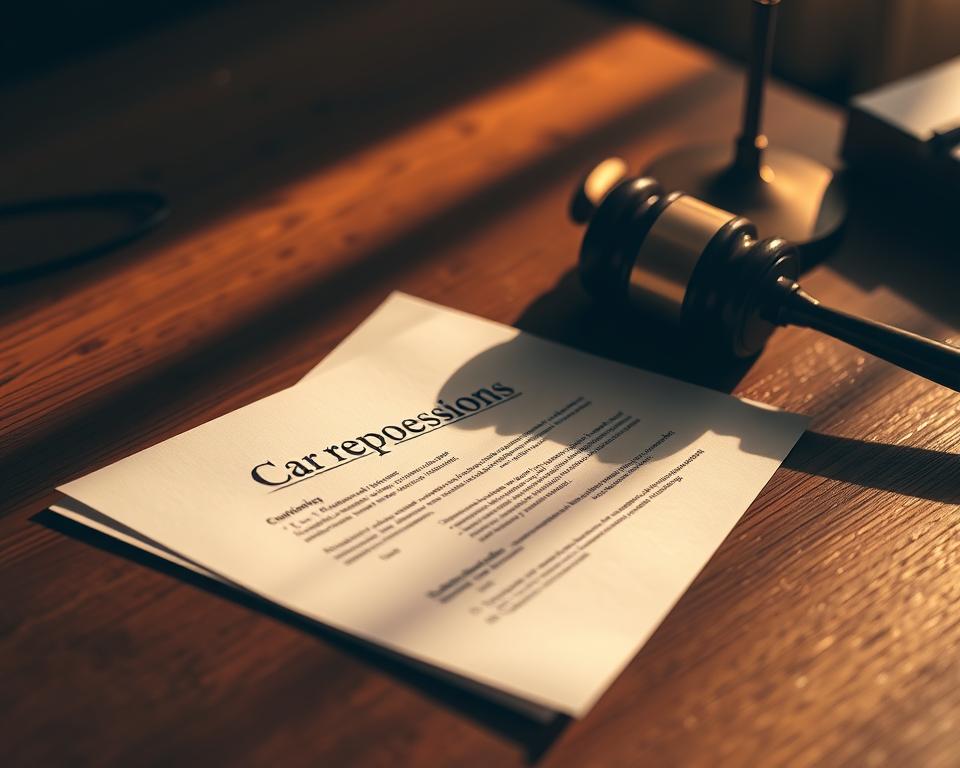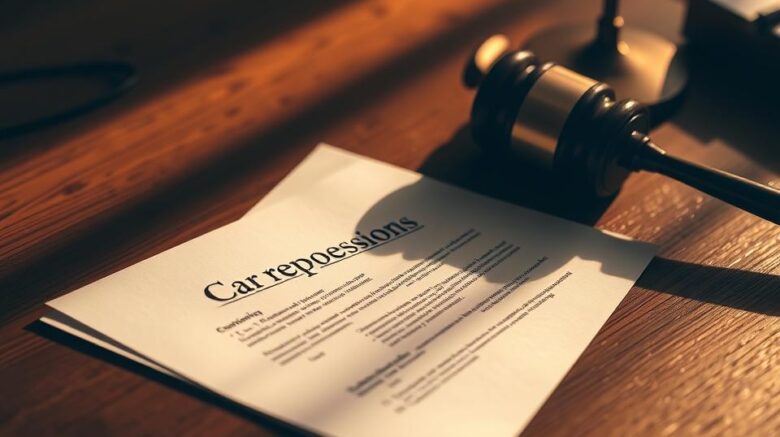Comprehending car repossession Regulations in California
Ever wondered about the procedure when a financier takes back a car within California? Working through car repossession laws in California can be complicated, notably amid economic stress. Once loans remain unsettled, financiers can swiftly initiate repossession. However, a great number aren’t aware of the specific rights and obligations stipulated in California’s repossession statutes.
Following nonpayment, California permits financiers to appropriate vehicles without warning. But, this doesn’t render consumers vulnerable. Grasping these laws proves crucial to consumers seeking to protect their interests. In this piece, we explore principal elements of California’s civil legislation and Commercial Code, detailing the process of repossession and borrower rights. Awareness is imperative, notably regarding your financial well-being.
Overview of car repossession in California
The repossession of a car poses a major challenge to a great number in the Golden State struggling financially. Understanding its core principles to better navigate possible obstacles. Such a situation arises whenever a creditor repossesses a automobile as a result of a noncompliance in the loan terms. These measures may severely impede one’s ability to find work or get required assistance.
What is car repossession?
The act of repossession happens when creditors take back vehicles from debtors that violate their agreements. Within the Golden State, missing even one due payment can trigger it. No grace period exists, urging borrowers to remain alert concerning their payment duties.
Frequent Causes for Repossession
Understanding what leads to repossession is crucial in prevention. Typical triggers comprise:
- Missing loan payments
- Neglecting the stipulated coverage requirements
- Violating particular terms within the contract
To evade repossession, vigilant fiscal oversight and engaging with lenders are imperative. Such steps may assist debtors maintain their car and the freedoms they provide.
Grasping Repossession Laws within California
The repossession regulations of California safeguard the concerns of both financiers and borrowers. They provide a fair process during car repossession events. Understanding the key legal details of repossession aids debtors. It clarifies their entitlements unambiguously.

Key Legal Provisions
Within these statutes are contained essential clauses. Lenders are required to adhere to the Act governing Automobile Sales Finance. This act delineates the notification requirements pertaining to borrowers. The issuance of a Notice of Seizure is required after repossession. This notice furnishes details on the ownership of the vehicle and the agency carrying out repossession.
Additionally, all repossession agents are required to be licensed. This allows debtors to inquire about the agent’s credentials. These stipulations significantly bolster consumer protection as stipulated by the law.
Entitlements pertaining to Borrowers
Debtors are afforded particular privileges that reinforce their safeguard throughout repossession. They are afforded sufficient advance notice. Understanding the process steps forms part of their rights. It is equally important to note that they must understand repossession agents cannot employ threats or force. Legislation prohibits any measures that breach public tranquility throughout the process.
These precautions affirm that individuals maintain their dignity and safety. This is vital during potentially turbulent times.
How Car Repossession Unfolds within California
The California repossession process starts when payments are missed or a lapse in insurance. Being aware of the sequence can help borrowers handle this tough situation –repo attorney. The next parts describe the steps and the events following repossession.
Procedural Steps Before Repossession
When a consumer fails to meet loan obligations, the creditor will notice. There is no advance warning before repossession, since the state does not mandate it. Here are the steps:
- A default is initiated by missing payments.
- Though not mandatory, the creditor might try contacting the borrower.
- Following this, representatives move to repossess the car without warning.
Subsequent Steps After Repossession
A written notice is delivered to the consumer within 48 hours after repossession. It outlines key data:
- Details regarding the lender and the involved agency
- A catalog of personal possessions within the car
A period of 60 days is provided to reclaim personal effects. Not doing so allows the agency to discard them. Borrowers have legal avenues to challenge a repossession, subject to individual conditions.
Combating Repossession within California
Facing car repossession in California can be intimidating. However, being aware of your available options significantly empowers you. By acting proactively, beneficial resolutions may be secured. Grasping your legal entitlements in such circumstances is crucial.
Understanding Your Legal Options
In order to fight repossession in the Golden State, understanding different legal options is paramount. Debtors may consider:
- Negotiating directly with creditors for a feasible payment plan
- Modifying payment terms to better suit their economic condition
- Seeking legal assistance if their rights have been breached during repossession
Early communication with lenders enhances the likelihood of a mutually acceptable arrangement. It is important that all negotiated terms are written down to forestall later misinterpretations.
Bargaining with Lenders
Negotiations with creditors play a pivotal role in handling repossessions. When repossession has already taken place, promptly reaching out to creditors could facilitate the return of the vehicle. Negotiation strategies include:
- Seeking a brief deferment of installments
- Exploring the option of voluntarily surrendering the car to ease monetary burdens
- Investigating different monetary strategies for unresolved payments
Keeping open lines of communication with creditors builds trust, thus paving the way for improved settlements. This mutual trust can facilitate arrangements that assist debtors in effectively managing their monetary difficulties.
Proactive Tactics to Avert Repossession
For retaining your car and dodging financial complications, knowing preventive measures is key. Within the Golden State, folks have several legal tactics to dodge repossession. These include engaging in frank discussions with lenders and verifying that your insurance coverage is sufficient.
Keeping Insurance Current
Ensuring your insurance remains active is key to preventing repossession challenges. Comprehensive auto insurance does more than cover accidents; it meets lender demands, too. A lapse in insurance coverage constitutes a violation of your financing contract, thereby risking repossession. Make it a habit to check and renew your policy to stay in line and worry-free.
Dialogue with Financiers
Interacting with financiers plays a key role in deterring car repossession. Discussing your financial challenges may reveal beneficial alternatives. Lenders may recalibrate your installment timeline or grant a temporary reprieve when funds are scarce. Early communication lays the groundwork for trust and helps avert unexpected repossession scenarios.
Bringing It All Together
Grasping the car repossession laws in California is essential for borrowers aiming to safeguard their rights and assets. The prospect of repossession often results in a rapid and unexpected process. This speed can restrict the chance for a timely and effective reaction. Understanding these statutes enables debtors to act strategically.
This guide sheds light on the key elements of car repossession laws in California. It affirms that debtors comprehend both their duties and privileges in the repossession process. Awareness of your legal alternatives can facilitate the management of repossession challenges. It makes it simpler to engage in negotiations with creditors and explore solutions that lead to positive outcomes.
Through informed actions and ongoing dialogue with creditors, consumers can mitigate the hazards associated with repossession. In essence, being informed about your rights under California’s repossession laws plays a crucial role. It contributes to preserving monetary stability and ensuring peace of mind in turbulent moments.
FAQ
How does a missed car loan payment affect me in California?
Failing to make a payment in California can rapidly trigger car repossession. Financiers can move straight to repossession given the absence of a grace period.
What legal entitlements do I possess in repossession?
After repossession, you’ll receive a Notice of Seizure. This notice outlines the vehicle’s title details and provides the contact information of the repossession agency. Every repossession agent is mandated to be licensed. You are entitled to verify their credentials.
How can I prevent car repossession in California?
To avoid repossession, ensure timely payments for loans and insurance. Regularly renew your insurance. Engage in ongoing dialogue with your creditor during monetary difficulties to explore feasible payment plans.
How should I respond if my car is repossessed?
Should your car be repossessed, remain in contact with your creditor to explore options such as contract reinstatement. Obtain attorney assistance if you feel your legal rights have been compromised.
Are there legal ways to fight a repossession in California?
Yes, direct negotiations with creditors to adjust payment terms are possible. Additionally, you can take legal action if repossession seems improper or violates state statutes.
Which factors most frequently lead to car repossession?
Failing to pay loans, lapses in insurance, and violations of financing agreements are common causes of repossession. Understanding these causes is essential for avoidance.
What is the timeframe for reclaiming a car post-repossession?
A 60-day timeframe is provided after repossession to retrieve your car. Beyond this period, the agency can liquidate your car and clear out any belongings.
Are creditors allowed to take back my car without warning?
Indeed, under certain legal conditions, California authorizes repossession without prior notice.
What should I do if I am having trouble making my car payments?
In case of financial troubles affecting your car payments, contact your creditor promptly. Explore options like deferments or renegotiating your loan terms to forestall repossession.
